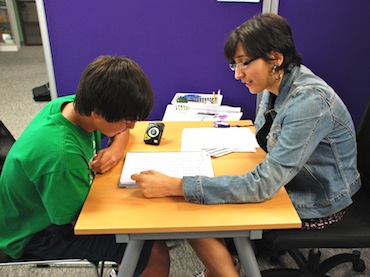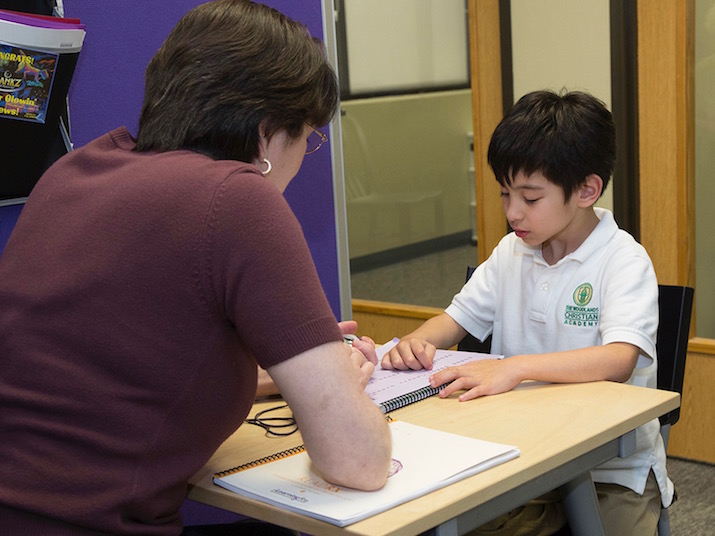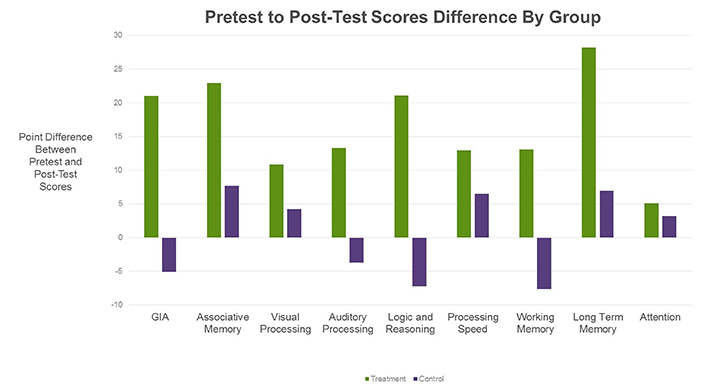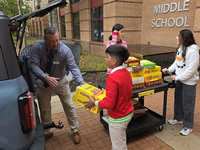- Sections :
- Crime & Public Safety
- Restaurants & Food
- Sports
- More
Categories
Back to school, back to homework: Transitional tips from The Woodlands LearningRx

THE WOODLANDS, Texas - Transitioning from a summer of sleeping in, playing all day and staying up late to a strict school regime can be tough for anyone.
Add homework back to the mix, and you could have a recipe for disaster, Kim Bellini, owner and director of The Woodlands LearningRx, explains.
“Luckily, there’s a lot parents can do to help,” she said. “Don’t despair. Be your child’s ally – and take proactive steps to make it a successful school year.”
Here are a few of Bellini’s tips:
1. Practice what you preach. Set a good example for your children by spending free time reading, playing an instrument, gardening and exercising. “If you watch too much television, chances are your child will follow suit,” Bellini said. “Encourage them to engage in activities that build brain power instead.”
2. Designate a regular homework time. Some kids need to come home from school and unwind, while others do best if they complete homework right after school. “Determine what works best with your child, and stick to a schedule,” Bellini said.
3. Celebrate achievements. Children need positive reinforcement. “Put their best work on display or let them overhear you boasting about their efforts or accomplishments to others,” Bellini said. “There’s nothing wrong with praising students for a job well done.”
4. Let children make mistakes. Don’t do your child’s work for them. Instead, be available to answer questions. Remember sometimes making a mistake is the best way to learn.
5. Set up a specific study area. A comfortable area stocked with school essentials can help keep your student focused on their work.
6. Create a calendar. Keep track of upcoming tests, writing assignments and projects and check in with your student to make sure they are preparing early.
7. Feed children brain food. Sugars, food dyes and highly processed foods can wreak havoc on kids’ brains, Bellini said. Opt for snacks and meals that help keep the brain at peak function: blueberries, salmon, eggs, nuts and leafy green vegetables.
8. Ensure students get plenty of quality sleep. Sleep helps recharge the brain. “If children aren’t getting enough Zs, their memory, attention and processing speed will suffer,” Bellini said.
9. Make learning fun. Incorporate math, history, English and science into everyday tasks and weekend excursions. Let children work with fractions in recipes, visit a museum on the weekend or speak another language at home. Try games and apps that build brain skills.
10. Learn to recognize signs of frustration. They are lots of reasons that kids procrastinate or take forever to do simple homework. Find out if the work is boring, too hard or too confusing and address those concerns immediately.
“Sometimes weak cognitive skills are to blame,” Bellini said. “If that’s the case, we can help.”
She explained that The Woodlands LearningRx offers customized one-on-one training programs to strengthen specific cognitive skills – and increase a student’s ability to succeed in school.
Located at 4840 West Panther Creek, Suite 205 in The Woodlands, the center offers brain-training programs for individuals of all ages -- including adults to better face work-related challenges and senior citizens who want to stay sharp and improve their quality of life. To learn more about The Woodlands LearningRx, call (832) 482-3082 or visit www.learningrx.com/the-woodlands or http://woodlandsenespanol.com/learning-rx.html.
Add homework back to the mix, and you could have a recipe for disaster, Kim Bellini, owner and director of The Woodlands LearningRx, explains.
“Luckily, there’s a lot parents can do to help,” she said. “Don’t despair. Be your child’s ally – and take proactive steps to make it a successful school year.”
Here are a few of Bellini’s tips:
1. Practice what you preach. Set a good example for your children by spending free time reading, playing an instrument, gardening and exercising. “If you watch too much television, chances are your child will follow suit,” Bellini said. “Encourage them to engage in activities that build brain power instead.”
2. Designate a regular homework time. Some kids need to come home from school and unwind, while others do best if they complete homework right after school. “Determine what works best with your child, and stick to a schedule,” Bellini said.
3. Celebrate achievements. Children need positive reinforcement. “Put their best work on display or let them overhear you boasting about their efforts or accomplishments to others,” Bellini said. “There’s nothing wrong with praising students for a job well done.”
4. Let children make mistakes. Don’t do your child’s work for them. Instead, be available to answer questions. Remember sometimes making a mistake is the best way to learn.
5. Set up a specific study area. A comfortable area stocked with school essentials can help keep your student focused on their work.
6. Create a calendar. Keep track of upcoming tests, writing assignments and projects and check in with your student to make sure they are preparing early.
7. Feed children brain food. Sugars, food dyes and highly processed foods can wreak havoc on kids’ brains, Bellini said. Opt for snacks and meals that help keep the brain at peak function: blueberries, salmon, eggs, nuts and leafy green vegetables.
8. Ensure students get plenty of quality sleep. Sleep helps recharge the brain. “If children aren’t getting enough Zs, their memory, attention and processing speed will suffer,” Bellini said.
9. Make learning fun. Incorporate math, history, English and science into everyday tasks and weekend excursions. Let children work with fractions in recipes, visit a museum on the weekend or speak another language at home. Try games and apps that build brain skills.
10. Learn to recognize signs of frustration. They are lots of reasons that kids procrastinate or take forever to do simple homework. Find out if the work is boring, too hard or too confusing and address those concerns immediately.
“Sometimes weak cognitive skills are to blame,” Bellini said. “If that’s the case, we can help.”
She explained that The Woodlands LearningRx offers customized one-on-one training programs to strengthen specific cognitive skills – and increase a student’s ability to succeed in school.
Located at 4840 West Panther Creek, Suite 205 in The Woodlands, the center offers brain-training programs for individuals of all ages -- including adults to better face work-related challenges and senior citizens who want to stay sharp and improve their quality of life. To learn more about The Woodlands LearningRx, call (832) 482-3082 or visit www.learningrx.com/the-woodlands or http://woodlandsenespanol.com/learning-rx.html.
Comments •















